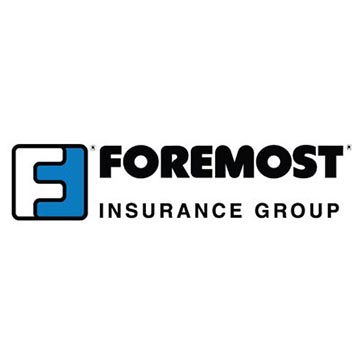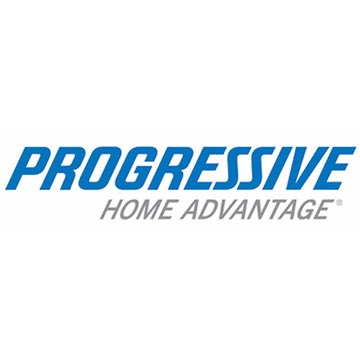"The Bakken and Workers' Compensation Coverage"
The Bakken oil patch has provided great opportunities for employment for numerous workers. With work opportunities naturally goes the need for workers' compensation insurance coverage.
Start a Quote Online Find an Agent
The Bakken oil patch has provided great opportunities for employment for numerous workers. With work opportunities naturally goes the need for workers' compensation insurance coverage. While the Bakken region encompasses both Montana and North Dakota, the majority of employment occurs in the latter state. Workers' comp. coverage availability is quite different between these two states! Employers need to be aware of those differences so that coverage gaps do not occur.
First, how coverage is obtained is very different. North Dakota is a monopolistic state fund. This means that coverage is only available for employees in North Dakota through the North Dakota Workforce Safety & Insurance. Coverage cannot be purchased through private insurance companies. That is illegal! North Dakota also does not allow self-insurance. Because of North Dakota's laws, certain advantages of a standard workers' compensation policy have to be handled in a different manner. While coverage A of the workers' comp. policy-Benefits-is the same under all of the states-"as directed by state law", Coverage B.-Employers Liability, must be purchased as a separate item. The usual method is to add this coverage by a Stop Gap endorsement to the employer's Commercial General Liability policy. Care must be taken that the coverage is at least as comprehensive as provided by the standard workers' comp. policy. Also, part C.-Other States coverage becomes vague and nearly non-existent. Therefore, a ND based employer has to be very aware of other state jurisdiction and various reciprocal agreements.
Montana, on the other end of the spectrum, is a competitive fund state. Private insurers are permitted as well as self-insured employers. Workers' comp. can be purchased through a private insurer or through the Montana State Fund (MSF). The latter is also referred to as the "guaranteed fund" and, with certain exceptions, must insure anyone who applies. In Montana benefits are the same for both private insurers and MSF-"as directed by State law", but special care must be taken when considering "Other States" coverage. The MSF is not as liberal as a private insurer might be in allowing automatic coverage in a 'listed' "Other States" insurance state. (As a note of explanation here: When a workers' comp. policy is first written, Coverage A. lists the employer's primary work state and any other state that operations are currently ongoing. The Coverage C. part, "Other States" is used to list those states in which the employer thinks he may have a future exposure. The best way to use this section is to list: All Other States except those listed in Coverage Part A, and the Monopolistic States.) This latter wording, "Monopolistic States" will encompass both neighbors, North Dakota and Wyoming! (Yes, Wyoming also has its own rules and regulations, and YES, it is also illegal to write private workers' comp. in Wyoming).
Jurisdictional issues are obviously paramount when it comes to workers' comp. Each state has its own rules and laws and compliance can be complicated. A multi-state employer must therefore be very aware of extraterritorial issues. An employee may have a selection of remedies; benefits may be piggybacked; jurisdiction specific statutes or extraterritorial rules, case law, common law and tests may limit or expand benefits!
Montana and North Dakota have a reciprocal agreement—that is, they will reciprocate each other's extraterritorial provisions, which is basically a way of honoring workers' comp. coverage from the other jurisdiction for workers' of that other jurisdiction-in their jurisdiction on a temporary and incidental basis! Basically, it helps eliminate duplicating workers' comp. coverage on employees temporarily out of state
sort of! Montana code 39-71-402 "Extraterritorial applicability and reciprocity of coverage-agreements with other states-rulemaking", gives some guidelines and has a special exception for those out of state workers engaged in the construction industry, as defined in MCA 39-71-116. North Dakota, in its "Coverage requirements for out-of-state Employees" has a "significant contacts" provision, which defines the circumstances when the other employer may be required to purchase coverage with WSI, the ND fund. Partially circumventing this issue is the provision that the 'significant contacts' test does not apply if your business has a reciprocal agreement in place between Montana and ND. Reciprocity agreements are for a limited amount of time so they must be monitored closely. This point also applies to the State of Wyoming, since they are also monopolistic and reciprocity agreements are in force with that state.
I've covered only some of the differences between our neighbor state regarding workers' compensation coverage. There are other considerations that each employer must address before hiring or taking current employees into any other state. Jurisdictional rules are unique to each state, Make sure your insurance advisor and legal counsel are aware of potential 'other states' operations before you start. Penalties for noncompliance are severe! Your firm could be held responsible for the same benefits "as directed by law"!
Article By: Dennis Gambill - The author is an Insurance Litigation consultant. Adjunct professor at EMC for 8 years-Risk & Insurance. 40+ years-both MGA and agency experience.

We'll Shop Around So You Don't Have To
Start a quote by filling out our online application providing us with the basic information we need to perform a quote. It only takes a few minutes and we'll respond within one business day.
Start a Quote Contact UsWe're Hiring
We're looking for industry experienced folks to join our team. Contact us at 406-652-4180 to inquire.
Top 10 Reasons You Need Cyber Liability Insurance
No matter what type of business you run, where you're located, or how much time you spend online – your business needs Cyber Liability Insurance.
business riskProfessional Liability Insurance
Almost every business or firm can become liable for injury to others resulting from a condition on its premises or arising out of its operations, products, completed work or actions of its employees.
business riskAnti-Indemnity Statute
Indemnity clauses generally are more common to construction projects primarily due to the risks involved maintaining a safe work environment.
business riskOur Insurance Partners











— Protecting Everything You Value Most —
Darnielle Insurance is available to answer your questions. We are located at 1320 28th Street West, Billings, MT 59102. Give us a call at 406-652-4180.